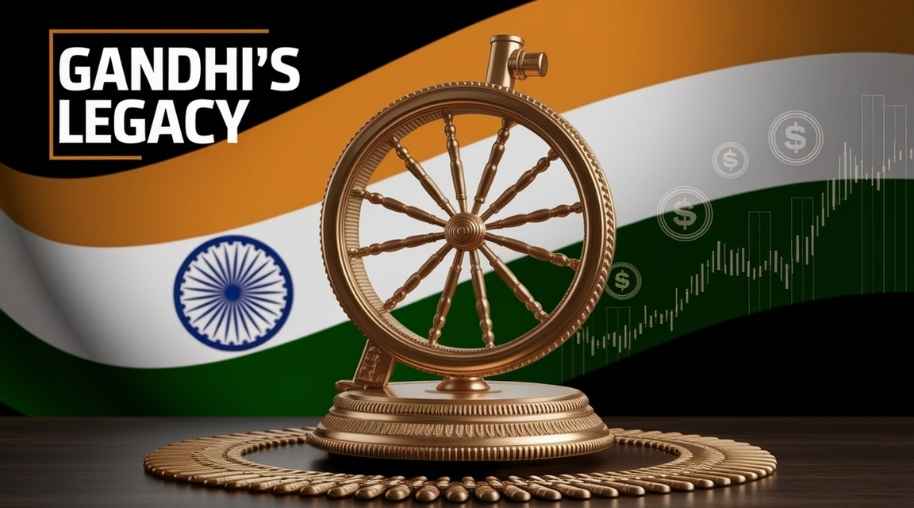MG Full Form-Mahatma Gandhi
by Shashi Gaherwar
0 2284
Mahatma Gandhi: The Father of the Nation and His Legacy of Nonviolence
Mahatma Gandhi, known as the Father of the Nation in India, was a leader, philosopher, and advocate of nonviolence and truth. His leadership in India's struggle for independence and his philosophy of Satyagraha (truth and nonviolent resistance) continue to inspire people around the world. Gandhi’s principles influenced many civil rights movements and continue to hold relevance in today’s world.
This article explores his early life, key contributions, philosophies, and lasting impact on the world.

Early Life and Education
Mohandas Karamchand Gandhi was born on October 2, 1869, in Porbandar, Gujarat, India. His father, Karamchand Gandhi, was a respected political leader, and his mother, Putlibai, was deeply religious. Gandhi’s upbringing in a devout Hindu household played a significant role in shaping his moral and ethical beliefs.
In 1888, he traveled to London, England, to study law at Inner Temple. During his stay, he was exposed to Western ideals and vegetarianism, which deepened his interest in ethics and self-discipline.
Gandhi in South Africa: The Birth of Satyagraha
After completing his law studies, Gandhi moved to South Africa in 1893 to work for an Indian firm. There, he faced racial discrimination, which deeply affected him. One defining incident was when he was thrown out of a train for refusing to leave a first-class compartment reserved for white passengers.
This experience led him to develop Satyagraha, a philosophy of nonviolent resistance, which he used to fight for the rights of Indians in South Africa. He organized protests against oppressive laws and discrimination, proving that peaceful resistance could be a powerful tool for social change.
Role in India’s Independence Movement
Gandhi returned to India in 1915 and soon became a prominent leader in the struggle for independence from British rule. Some of his key movements included:
- Non-Cooperation Movement (1920-1922):
- Encouraged Indians to boycott British goods, institutions, and services.
- Promoted self-reliance and Swadeshi (use of Indian-made goods).
- Civil Disobedience Movement (1930):
- Launched the Dandi Salt March, a 240-mile protest against the British salt tax.
- Millions of Indians joined the movement, defying British laws peacefully.
- Quit India Movement (1942):
- Gandhi called for an immediate end to British rule.
- He gave the famous slogan: "Do or Die", urging Indians to fight for complete independence.
- The movement led to his imprisonment but also intensified the demand for freedom.
Philosophy and Principles
- Satyagraha (Truth and Nonviolence):
- Believed that truth (Satya) and nonviolent resistance (Ahimsa) were the strongest forces for justice.
- Inspired movements for civil rights, including those led by Martin Luther King Jr. and Nelson Mandela.
- Simplicity and Self-Sufficiency:
- Advocated for a simple lifestyle and encouraged Indians to use Khadi (hand-spun cloth) instead of British-made textiles.
- Opposed materialism and encouraged ethical living.
- Religious Tolerance and Unity:
- Promoted Hindu-Muslim unity and harmony among different religious communities.
- Opposed caste discrimination and untouchability.
Gandhi’s Assassination and Legacy
On January 30, 1948, Mahatma Gandhi was assassinated by Nathuram Godse, a radical extremist who opposed his vision of religious harmony. His death was mourned worldwide, and his ideals continued to inspire movements for peace, justice, and human rights.
Global Influence:
- Martin Luther King Jr. adopted Gandhian principles in the American Civil Rights Movement.
- Nelson Mandela used similar ideals in South Africa’s anti-apartheid struggle.
- His teachings remain relevant in modern conflicts, advocating for peaceful solutions over violence.
Mahatma Gandhi was more than a political leader—he was a visionary and a moral guide. His commitment to truth, nonviolence, and justice shaped not only India’s freedom struggle but also influenced global movements for human rights and peace.
Even today, his teachings continue to inspire people worldwide, proving that nonviolence remains one of the most powerful weapons for change.
Further Learning Resources
If you’re passionate about building a successful blogging website, check out this helpful guide at Coding Tag – How to Start a Successful Blog. It offers practical steps and expert tips to kickstart your blogging journey!
For dedicated UPSC exam preparation, we highly recommend visiting www.iasmania.com. It offers well-structured resources, current affairs, and subject-wise notes tailored specifically for aspirants. Start your journey today!

Share:









Comments
Waiting for your comments